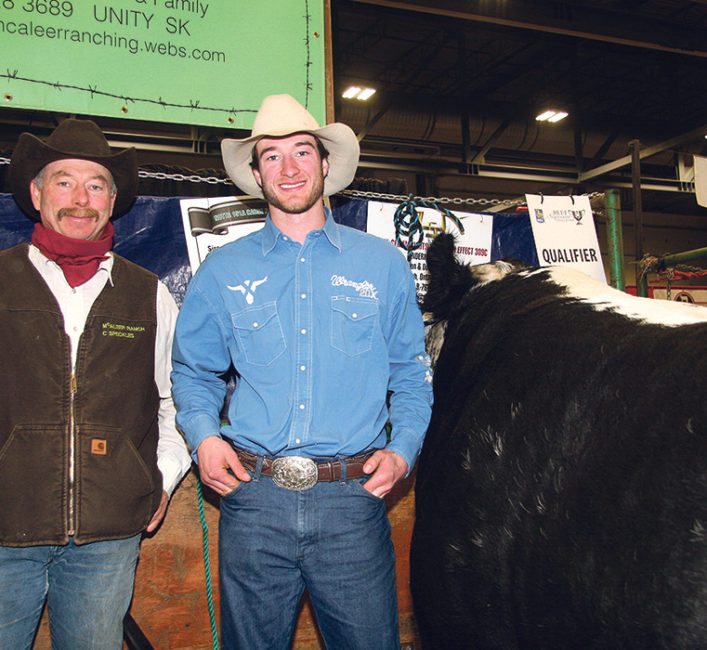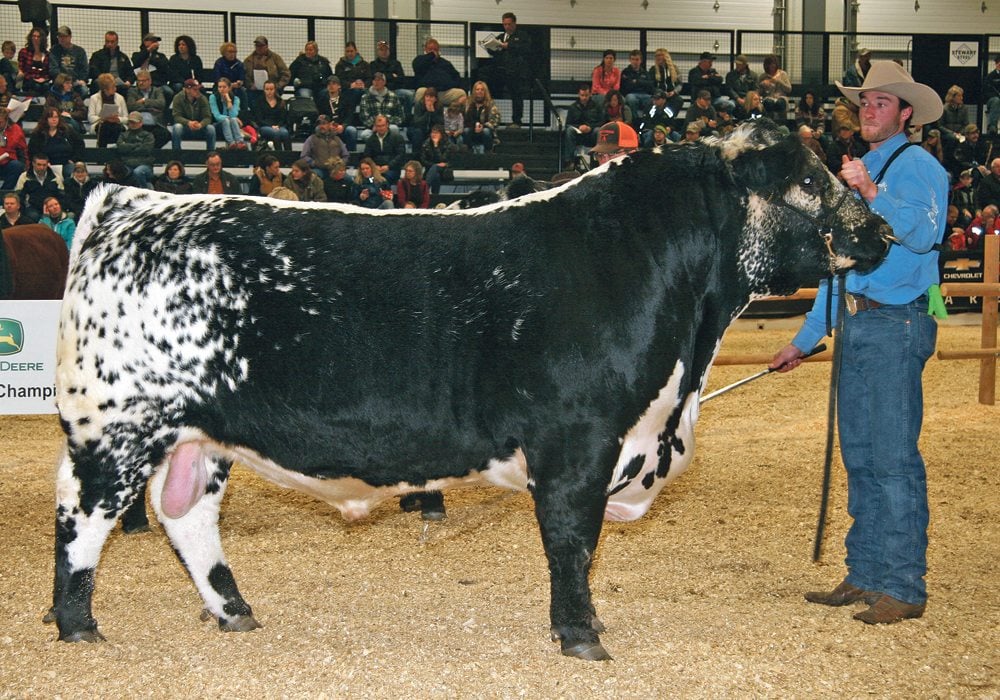REGINA — Curtis and Dustin McAleer think like commercial beef producers when it comes to raising their Speckle Park purebred cows.
“We were commercial cattlemen as long as the family has been around,” said Dustin.
The family homesteaded at Neilburg, Sask., around 1913-14 but did not get into the purebred business until 2012 when Dustin wanted to raise registered cattle.
They knew of Speckle Park breeders in their area who could sell them bulls, but they weren’t sold on the breed until they tasted the beef from the animals, which were officially recognized as a breed in 2006.
Read Also

Beef cattle more prone to trace mineral deficiencies
The trace mineral status of our cows and calves is a significant challenge for western Canadian producers and veterinarians.
A breeder told them they could cut Speckle Park steaks with a fork. McAleers were dubious but were so impressed after a single meal, they decided this was the breed for them
“I ate that whole steak and never needed a knife,” said Curtis.
They started using a Speckle Park bull on their mixed breed commercial cows. Their commercial cattle with Speckle Park breeding yielded better and graded AAA or Canada Prime.
The purebred herd is 35 females and Dustin transferred 27 embryos into recipients to expand the herd. He was able to jumpstart the herd when a retiring breeder wanted to disperse and he bought out the cows.
Dustin started showing four years ago.
“When you go to these shows, you never know what is going to happen. We knew we had improved our cattle from last year, but then so did everybody else,” said Dustin.
“You don’t know what the judge is going to be looking for, so when he likes your animals it is definitely a good feeling and a nice surprise,” he said.
Judges Daryl and Leila Hickman of Vermilion, Alta., awarded the McAleers with grand champion bull and female, reserve bull calf champion and best pair of bulls at Canadian Western Agribition held Nov. 20-25 in Regina.

Their grand champion bull was also champion at the recent Farmfair International show in Edmonton.
The McAleers sold semen rights on the champion bull earlier this year and have started marketing embryos.
After Agribition, the McAleer operation moves into calving. The purebreds start in February and commercial cows calve from April to June.
Dustin wants to shift the purebred calving period to January and February so the cattle are starting to mature by the end of the year. When it comes to management, all have to thrive under local conditions.
“We raise them like commercial cattle. Our females don’t see any grain and they have to produce on hay in winter. If they don’t produce enough, we have to get rid of them,” he said.
Early next year they plan to offer 10 bulls at a special Speckle Park sale at Veteran, Alta.
The Speckle Park sale at Agri-bition held Nov. 22 drew an international crowd.
The high seller from Outback Farm of Sturgeon County in Alberta sold for $20,000 to a syndicate of buyers called Global Speckle Park Elite Ltd. for a March 2017 heifer named Outback Ms Flash Dancer 112E.
Other high sellers included a bred female from River Hill Farms at Neilburg, Sask. It sold for $17,000.
A homozygous polled heifer from Colgan’s Cattle Co. of Lashburn, Sask., fetched $15,500 from a New Zealand buyer.
Live cattle and embryo packages sold to buyers across Canada, England, Australia, New Zealand, Oklahoma and New York State.
The sale totalled $222,000 and 14 female lots averaged $11,634.
Eleven embryo packages averaged $5,113.
















